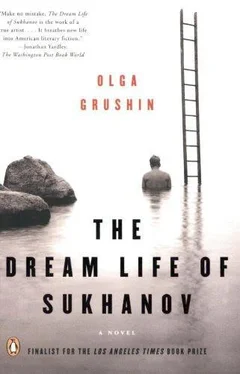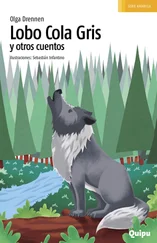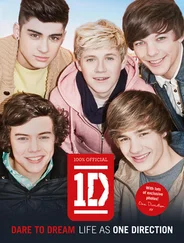This position of a genius whose art had grown too universal both for aestheticizing detachment and for political partiality would make it hard for Chagall to be appreciated in Russia before the Revolution and impossible for him to remain there much longer afterward, but in a sensitive omission, D. M. Fyodorov had elected not to dwell on Chagall’s subsequent exile and wanderings. Instead, he had devoted the rest of the article to a poetic tribute to the master’s lifelong themes—his “poignant, eternal world, radiant like a window opening from the darkness of our souls into bright blue skies, filled with flying fiddlers, green-faced lovers, and mysteriously smiling cows,” as he wrote in his conclusion, “a world that seems childlike and simple and yet achieves truly biblical proportions, touching the very core of our being.”
Frowning, Sukhanov tapped his pen against the stack of paper before him. Of course, he would never have allowed this piece anywhere near his magazine under ordinary circumstances, but he supposed Pugovichkin was right—it was always wiser not to cross those more important than oneself. And in any case, it could have been worse: at least it read more like a philosophical discourse on the nature of art than a subversive manifesto. All the same, it was apparent that, inspired though it might be, the text could not remain unaltered. It lacked a proper critical attitude. Even more problematic, it betrayed an openly religious sensibility, what with its constant references to the Bible, its assertion of love as the unifying principle of Chagall’s universe, its comparisons between his manner and traditional iconic art, and… and…
For one uncomfortable moment, the by now familiar sensation of fleeting recognition, of his past and present endlessly reflecting off each other in a multiplying infinity of mirrors, visited Sukhanov again, disrupting the flow of his thoughts; but in a quick outburst of determination he shrugged it off and lifted his pen. The Lunacharsky scene had to go—or better yet, he would keep it (naturally, omitting Chagall’s scandalous mention of Marx) in order to use it as a departure point for a stern reevaluation of Chagall’s work. Perhaps something along these lines: “While the painter was able to perceive the insolvency of the bourgeois art of Bakst and his school, he lacked the maturity needed to appreciate the noble truth of Lunacharsky’s position, thus failing to understand the real purpose of art as the people’s weapon in their struggle against oppression.” Yes, indeed, this would serve as the perfect introduction to a subsequent discussion of the artist’s themes: their childish, fairy-tale nature, their total isolation from reality, their slavish reliance on religious motifs… As Sukhanov’s pen flew across the pages, crossing out every occurrence of “biblical” and “eternal” and putting a fat question mark next to every mention of “love,” he was beginning to think that it was possible, just possible, to keep the wolves full and the sheep whole. Thus occupied, he did not hear the soft knock on the door, and was presently startled by his cousin’s apologetic voice close to his ear.
“Dinner’s ready,” said Fyodor Mikhailovich, spreading his hands in a rueful gesture. “All I do is interrupt your work.”
Aheap of dumplings lay steaming before them, with a dollop of sour cream sliding weightily down the bowl’s rim. Ksenya helped herself to a hearty serving. Despite the early afternoon hour, the lamp was lit, and its garish orange light irritated Sukhanov’s eyes. His gaze kept straying to the empty seat—Nina’s seat—at the end of the table.
“Shall we resume our earlier conversation?” Dalevich suggested readily.
“Ah, yes,” Sukhanov replied without much interest. “Where were we, exactly?”
“Innovation versus tradition. Or to use my example, the universe of Kandinsky versus the universe of Chagall. Which actually brings me to the very subject I was hoping to—”
Sukhanov lowered his fork.
“The universe of Chagall?” he repeated distractedly. “Why, that’s a curious—”
He was about to say “coincidence,” but he never did, for in the next instant his memory, with an almost perverse precision, delivered to him Dalevich’s comment from two days earlier. Chagall’s “childlike universe of flying fiddlers, green-faced lovers, and mysteriously smiling cows,” his cousin had said. And those words—those words mirrored to an uncanny degree the phrase he had read not an hour before—the phrase written by the unknown Fyodorov. Naturally, a literal duplication was impossible, so it must have been a simple trick of the mind: under the fresh impression of the article, he must have somehow distorted Fyodor’s original words…. Unless, that is… unless… could it be…
For one prolonged moment of disbelief, he stared at the man sitting across his kitchen table. He stared at the man’s yellow beard, his sparkling, oddly shaped glasses, his moving thin lips—stared without hearing one word of what the man was saying. Then the possibility of truth overwhelmed him. His eyelids felt heavy and hot as if dusted with sand, and he had to close his eyes.
“… the very subject I was hoping to address,” Dalevich was saying just then. “You see, some years ago I wrote a series of essays analyzing the influence of Russian iconic art on modern artists, and naturally, one of my first studies was on… Tolya, are you all right?”
Slowly Sukhanov opened his eyes. It should not have come as such a shock; there had been warning signs, after all. “A curator from somewhere or other,” Pugovichkin had told him, and he had indeed felt something hauntingly familiar in the unfolding of Fyodorov’s arguments. Then there was the now apparent matter of inverted names, so easy to see through…. Yet it shocked him deeply all the same.
Sukhanov moistened his dry lips before speaking.
“So,” he said, enunciating carefully, “Fyodor Mikhailovich Dalevich—or should I say D. M. Fyodorov? Seems you both had a little joke at my expense.”
Ksenya’s released fork clicked against her plate with an unexpected sound.
“Tolya, as I’ve been trying to explain—” Dalevich began with a placating smile.
“Explain?” Sukhanov interrupted. “Please, what is there to explain? You sleep in my house, you eat my food, and then you stab me in the back—really, it’s very simple! Or did you not realize what the appearance of such an article in my magazine would do to my reputation? And were you even going to admit you were behind it?”
Dalevich started to talk, stammering with emotion, pressing his hands to his chest, assuring “dear Tolya” how much his good opinion meant to him and how the whole affair had simply been an accident, for, even though he had always found the notion of being published in Art of the World very intriguing (“Not least, Tolya, because of you, I admit”), he would never have knowingly gone behind Sukhanov’s back. He had merely shown his Chagall article some time ago to a friend, who, in turn, had passed it along to another friend, who had just chanced to be quite high up in the Ministry of Culture, and then everything had happened so quickly, and almost without his consent…. But even setting all that aside, he had never intended to hide his authorship of the piece: “Fyodorov” had been his pen name for years, and moreover, he had tried to talk about it on numerous occasions, only each time Sukhanov had been too busy to listen….
For some minutes, Sukhanov was incapable of discerning anything beyond the uneven hum of blood in his ears, but the absurdity of the last statement all at once intruded on his senses.
“Ah, so that’s the problem,” he said bitingly. “I’ve been too busy to listen! Actually, it seems I’ve been too busy to do a lot of things lately—to run my own magazine, to take my wife out to museums, even to sleep in my own bed! Luckily for me, you came along, saw my sad predicament, and given all the free time on your hands, decided to help me out, yes?”
Читать дальше








![Theresa Cheung - The Dream Dictionary from A to Z [Revised edition] - The Ultimate A–Z to Interpret the Secrets of Your Dreams](/books/692092/theresa-cheung-the-dream-dictionary-from-a-to-z-r-thumb.webp)



